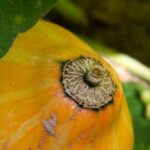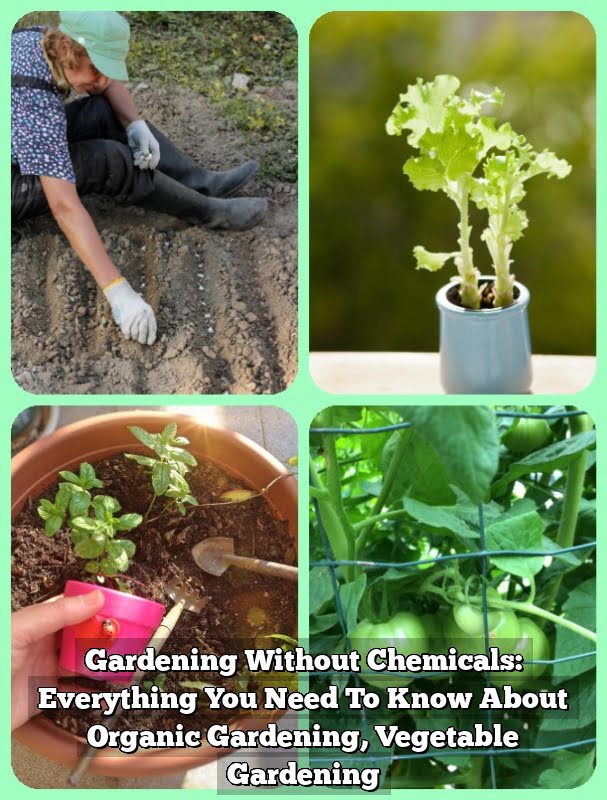Vegetable gardening activities for preschoolers are not only a fun and engaging way to keep the little ones busy, but also a valuable educational experience. Teaching preschoolers about vegetable gardening has numerous benefits, from promoting physical activity to fostering an understanding of healthy eating habits and connecting with nature. In this article, we will explore the importance of incorporating vegetable gardening into preschool activities, as well as how to make it a rewarding and educational experience for young children.
Introducing preschoolers to vegetable gardening is more than just getting their hands dirty; it is an opportunity for them to learn about where food comes from, the importance of nurturing living plants, and the joy of tasting the fruits of their labor. Through these activities, children can develop an appreciation for the environment and gain essential life skills that lay the foundation for a healthy lifestyle.
In the following sections, we will delve into the specific benefits of vegetable gardening for preschoolers, discuss how to choose the right vegetables for them to grow, provide guidance on getting started with the necessary tools and supplies, and explore various fun and educational activities that can be incorporated into their gardening adventures. Join us in discovering the wonderful world of vegetable gardening for preschoolers.
Benefits of Vegetable Gardening for Preschoolers
The benefits of vegetable gardening for preschoolers are abundant and provide valuable learning experiences that go beyond the garden. Engaging in vegetable gardening activities for preschoolers offers physical activity, teaching them about healthy eating, and connecting them with nature.
Physical Activity
One of the main benefits of vegetable gardening for preschoolers is the physical activity it provides. Digging, planting, watering, and weeding all require movement, which helps develop gross motor skills and improves coordination. Additionally, being outdoors and getting fresh air contributes to overall physical well-being.
Learning About Healthy Eating
Engaging in vegetable gardening activities also presents an opportunity to teach preschoolers about healthy eating. By involving them in the process of growing their own vegetables, they develop an understanding of where food comes from and how it contributes to a balanced diet. This hands-on experience can encourage them to eat more fruits and vegetables as they see the results of their efforts come to fruition.
Connecting With Nature
Another significant benefit of vegetable gardening for preschoolers is the opportunity to connect with nature. Tending to plants allows children to observe the natural world up close, fostering a sense of wonder and appreciation for the environment. It can also instill a sense of responsibility as they care for living things and learn about sustainability.
Incorporating these benefits into vegetable gardening activities for preschoolers not only promotes their physical, mental, and emotional development but also cultivates a lifelong love for nature and healthy living.
Choosing the Right Vegetables for Preschoolers
When it comes to choosing the right vegetables for preschoolers to grow, it’s essential to select options that are easy to grow and appealing to young children. By selecting the right vegetables, you can make the gardening experience more enjoyable and rewarding for preschoolers.
Easy-to-Grow Options
One of the most important factors to consider when choosing vegetables for preschoolers is their ease of growth. Vegetables such as cherry tomatoes, snap peas, and lettuce are great choices because they require minimal maintenance and have relatively short growing periods. These easy-to-grow options allow preschoolers to see the fruits of their labor relatively quickly, keeping them engaged and excited about gardening.
Colorful and Kid-Friendly Choices
In addition to being easy to grow, it’s also beneficial to choose vegetables that are visually appealing and interesting for preschoolers. Brightly colored vegetables like carrots, radishes, and bell peppers not only add visual interest to the garden but also make for exciting harvests. When preschoolers see a rainbow of colors in their garden, they are more likely to be enthusiastic about caring for their plants and trying new foods.
By carefully selecting easy-to-grow options and colorful, kid-friendly choices, you can set preschoolers up for a positive vegetable gardening experience. This will not only introduce them to the joys of gardening but also encourage healthy eating habits and a lifelong love of nature.
Getting Started
When it comes to getting preschoolers involved in vegetable gardening activities, it’s important to start by preparing the garden space and ensuring that you have the necessary tools and supplies. The first step is to designate a specific area for the garden, whether it’s a small plot in your backyard or a few pots on a balcony. Make sure the space gets plenty of sunlight and is easily accessible for little ones to reach.
Once you have your garden space sorted out, it’s time to gather the tools and supplies needed for vegetable gardening with preschoolers. Child-sized gardening gloves and tools are essential to ensure their safety while allowing them to actively participate in the gardening process. You’ll also need child-friendly watering cans or spray bottles, as well as kid-safe fertilizers and pesticides if necessary.
In addition to tools, you’ll need to gather supplies such as potting soil, seeds or seedlings, and containers if you’re opting for a container garden. Involving preschoolers in this process can be an educational experience in itself, as they learn about the different materials needed for successful gardening.
Engaging them in choosing colorful and interesting vegetables to grow can also pique their interest and make the experience more enjoyable for them. With some careful preparation and gathering of supplies, you’ll be ready to embark on an exciting journey of vegetable gardening activities with preschoolers.
Fun and Educational Activities
When it comes to vegetable gardening activities for preschoolers, there are plenty of fun and educational tasks that can be included in their gardening experience. These activities not only teach them about the process of growing food but also help develop important skills and knowledge that they can carry with them as they grow.
Here are some enjoyable and educational activities to consider when involving preschoolers in vegetable gardening:
- Seed Planting: Let the little ones get their hands dirty by helping them plant seeds in the soil. Teach them about the different types of seeds and how they transform into plants.
- Watering: Show preschoolers how to water the plants gently to help them grow. Explain why plants need water and how it helps them stay healthy.
- Weeding: Involve preschoolers in the process of weeding the garden. Teach them how to identify weeds from vegetable plants and explain why it’s important to keep the garden free from weeds.
- Harvesting: When it’s time to harvest the vegetables, let preschoolers join in on the fun. Show them how to pick ripe vegetables and talk about what can be done with the harvested produce.
Engaging preschoolers in these activities not only teaches them valuable lessons but also allows them to take an active role in caring for their own little garden.
In addition to these tasks, make sure to incorporate learning opportunities throughout each activity. For example:
- Counting Seeds: Practice counting skills by having preschoolers count out the seeds before planting.
- Identifying Plants: Teach children about different types of vegetables by helping them identify various plants as they grow.
- Measuring Growth: Use a measuring tape or ruler to track the growth of plants over time, allowing preschoolers to see tangible progress.
By integrating education into these gardening activities, you can provide a well-rounded experience for preschoolers while fostering their curiosity and love for nature.
Incorporating Learning
When it comes to teaching preschoolers about vegetable gardening, there are numerous opportunities to incorporate learning into the experience. Here are some fun and educational activities to engage preschoolers in the process of growing their own vegetables.
1. Counting Seeds: This activity not only reinforces basic math skills but also teaches preschoolers about the concept of planting and growth. Have them count out the seeds as they plant them in the soil, emphasizing the importance of each seed eventually sprouting into a plant.
2. Identifying Plants: As the seedlings begin to grow, encourage preschoolers to observe and identify the different parts of the plants, such as leaves, stems, and roots. Use simple terms to explain how each part contributes to the plant’s growth and development.
3. Measuring Growth: Preschoolers can learn about measurement by tracking the growth of their vegetable plants. Use a ruler or measuring tape to regularly measure and record the height of the plants. This not only teaches them about observation and data collection but also provides a visual representation of how their care and attention is helping the plants thrive.
Incorporating these learning activities not only enhances preschoolers’ understanding of vegetable gardening but also provides valuable skills that can be applied in other areas of their education. As they continue to engage in vegetable gardening activities, they will develop a deeper appreciation for nature and healthy eating habits while honing essential skills for their development.
Creative Projects
Engaging preschoolers in creative projects while vegetable gardening can enhance their learning and foster their love for nature. Painting plant markers is a fun and interactive way for children to identify different vegetables in the garden. By involving them in this activity, they can take ownership of their little garden and feel a sense of pride as they watch the plants grow. Encourage them to use bright colors and add their own personal touch to each marker.
In addition to painting plant markers, engaging preschoolers in making nature-inspired art can further develop their creativity and appreciation for the environment. Collect leaves, flowers, and other natural materials from the garden, and use them to create beautiful artwork. This activity not only encourages imagination but also allows children to connect with the natural world around them. It’s an opportunity for them to explore textures, shapes, and colors while also learning about different elements found in the garden.
Furthermore, creating a garden journal can be an excellent way for preschoolers to document their gardening journey. Whether through drawing, writing, or using photographs, encourage them to record the progress of their plants as they grow.
This will not only serve as a keepsake but also as a tool for reflection on their experiences with vegetable gardening activities for preschoolers. It’s important to provide guidance and support throughout these creative projects, allowing children to express themselves freely while connecting with nature in a meaningful way.
Harvesting and Celebrating
After all the hard work of planting, watering, weeding, and patiently waiting for their vegetables to grow, it’s finally time for preschoolers to harvest their crops. This is a perfect opportunity to involve them in the process of cooking and tasting the fruits of their labor. Engaging preschoolers in meal preparation can further enhance their learning experience and appreciation for vegetable gardening activities.
Cooking with preschoolers can be a fun and educational experience. It allows them to learn about different vegetables, taste new flavors, and understand where their food comes from. Simple recipes like vegetable stir-fry, fresh salads, or homemade salsa are great options for involving preschoolers in meal preparation. By actively participating in cooking, they can also develop fine motor skills, follow instructions, and practice basic kitchen safety.
In addition to cooking, tasting the vegetables they grew can be a rewarding experience for preschoolers. It helps them understand the connection between gardening and food consumption while reinforcing healthy eating habits. Moreover, involving them in meal preparation and tasting their own harvests can boost their confidence and sense of accomplishment.
| Benefits of Involving Preschoolers in Meal Preparation | Benefits of Tasting Homegrown Vegetables |
|---|---|
| Develops fine motor skills | Reinforces healthy eating habits |
| Teaches following instructions | Boosts confidence and sense of accomplishment |
| Educates about different vegetables | Understands connection between gardening and food consumption |
Closing Thoughts
In conclusion, vegetable gardening activities for preschoolers offer a multitude of benefits that contribute to their physical, mental, and emotional development. By engaging in hands-on gardening experiences, young children can learn valuable lessons about healthy eating, the natural world, and the satisfaction of growing their own food. Not only does vegetable gardening provide physical activity and exposure to nature, but it also serves as a platform for incorporating essential educational concepts into everyday tasks.
It is important to emphasize that choosing the right vegetables for preschoolers is key to ensuring a successful and enjoyable gardening experience. Opting for easy-to-grow options and colorful, kid-friendly choices can capture their interest and make the process more engaging. Additionally, involving preschoolers in every step of the gardening process – from seed planting and watering to weeding and harvesting – fosters a sense of responsibility and accomplishment as they witness firsthand the growth and development of their plants.
As educators and parents, it is crucial that we continue to encourage preschoolers’ exploration in vegetable gardening. Incorporating learning opportunities such as counting seeds, identifying plants, measuring growth, and engaging in creative projects like painting plant markers or creating a garden journal can further enrich their gardening experience.
By celebrating the harvest through cooking together and tasting the fruits of their labor, we instill in them an appreciation for wholesome foods and inspire healthy eating habits that can last a lifetime. Ultimately, by creating a positive environment for vegetable gardening activities for preschoolers, we are nurturing their curiosity, creativity, and connection with nature while laying the foundation for lifelong skills and values.
Frequently Asked Questions
What Is Gardening for Preschoolers?
Gardening for preschoolers is a hands-on activity that allows young children to learn about nature, plants, and the environment. It’s a way for them to explore and understand how things grow and where food comes from.
What Questions Should I Ask My Preschooler About Gardening?
When talking to preschoolers about gardening, it’s essential to ask open-ended questions that encourage them to think and share their observations. Questions like “What do you think plants need to grow?” or “Why do we water the plants?” can help spark their curiosity and understanding of gardening.
How Do You Teach Gardening?
Teaching gardening to preschoolers can be done through simple, age-appropriate activities such as planting seeds, watering plants, and observing growth. Incorporating storybooks or songs about gardening can also engage children in learning about different types of plants and how to care for them. It’s important to make it a fun and interactive experience for them.

If you’re looking to get into vegetable gardening, or are just looking for some tips on how to make your current garden better, then you’ve come to the right place! My name is Ethel and I have been gardening for years. In this blog, I’m going to share with you some of my best tips on how to create a successful vegetable garden.





